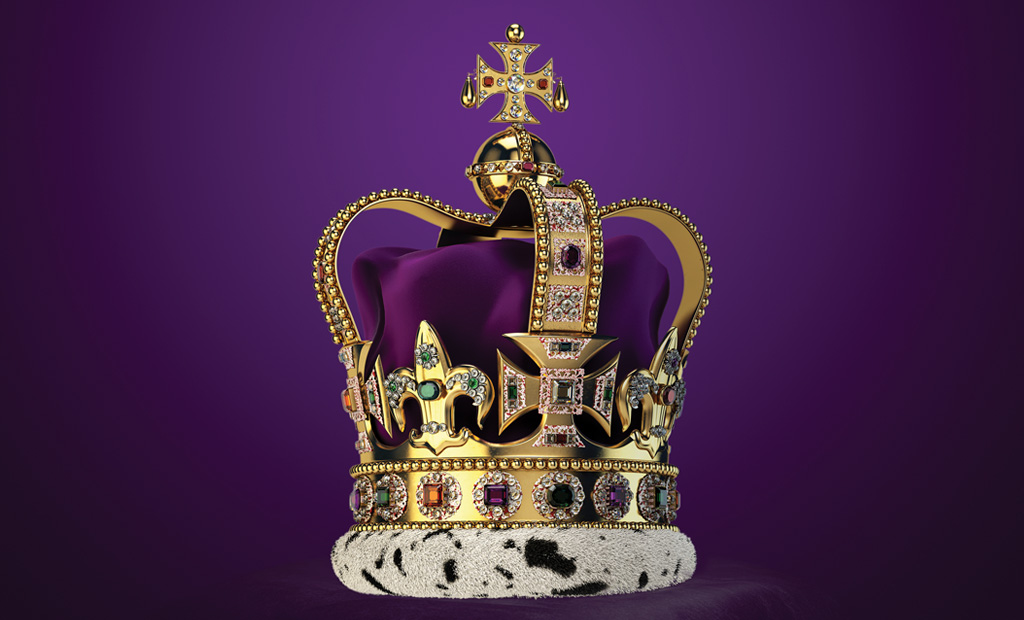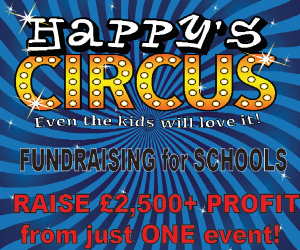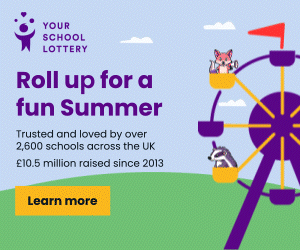The term coronation simply means the act of placing a crown on a monarch’s head, but is commonly used to describe the ceremony and all the celebrations surrounding it. Plans for King Charles III’s coronation, known as Operation Golden Orb, have been under discussion for many years.
His Majesty will be the 40th sovereign to be crowned at Westminster Abbey in London. The ceremony itself is a solemn, religious service, but it will form the centrepiece of countless exciting and joyful events.
Back in 1953, Queen Elizabeth II’s coronation ceremony lasted over three hours and was attended by more than 8,000 guests. It was the first to be televised and was watched by 27 million people in the UK alone. The return procession of less than five miles took 16,000 participants over two hours to complete.
The King is expected to opt for a smaller, more modern celebration. In a statement, Buckingham Palace said: ‘The coronation will reflect the monarch’s role today and look towards the future, while being rooted in longstanding traditions and pageantry.’
During the ceremony, the King will take the coronation oath where he undertakes to rule according to law, exercise justice and maintain the Church of England. King Charles will be anointed with holy oil, receive the orb, coronation ring and sceptre, then be crowned and blessed. Camilla, the Queen Consort, will also be anointed and crowned.
What we know so far
What: The Coronation of King Charles III and Camilla, the Queen Consort
When: Saturday 6 May with an additional bank holiday on Monday 8 May
Where: Westminster Abbey, London
Who: Conducted by the Archbishop of Canterbury
What else is planned: Communities are invited to share food and fun together on Sunday 7 May, at Coronation Big Lunches. Find out more and download a free resource pack at CoronationBigLunch.com. There will also be a Coronation Concert and lightshow at Windsor Castle where organisers are promising ‘some of the world’s biggest entertainers‘.
On Monday 8 May, people are being encouraged to support their communities by volunteering for local projects and good causes – as more details emerge, think about how your PTA could be one of them. The Big Help Out is designed to highlight the positive impact of volunteering and leave a lasting legacy.
‘Our school has a strong history of royal celebrations’
Gary Spracklen, headteacher at the Prince of Wales School in Dorchester is already making plans
The coronation will be a special occasion for everyone at the Prince of Wales School in Dorchester. Our one-form-entry school is located on land owned by the Duchy of Cornwall and we have a long, deep association with Charles himself. In the 1990s, he signed off the original design of the school buildings and he has visited us three times in person. Pupils have also met him at local events and at Poundbury, his model village.
But even without the royal connection, we’d still be celebrating! The coronation is a historic event – perhaps not once in a lifetime for these children, but the only time they will get to celebrate the crowning of a new monarch in their primary school years. Events like these will be written in the history books and for the children to be able to understand that is a unique opportunity.
Community is important to us as a school, so we’ll be gathering parents, grandparents, aunties, uncles, and local people to celebrate everything that’s good about being together.
Aim to inspire
We’re already starting to develop lots of ideas. I’ve got the most amazing PTA – they are always there to add extra pairs of hands and help run events. Together, we’re planning a street party where we will reflect on the school’s history and our connection with the royal family. We’re planning a series of special events including musical soirees, art exhibitions and sporting festivals. Collaborating with former pupils, we hope to inspire our current children by showing them pathways they might follow in the future.
As part of our day-to-day curriculum, we often work with grandparents and local care home residents, so we’ll also be reflecting on memories of Queen Elizabeth II’s coronation in 1953.
Flying the flag
For the jubilee, we held a giant street party. The PTA put strings of Union Jacks on a large wooden fence at the front of the school and we hung bunting from the streetlamps to the school building. When visitors arrived, it was like going down The Mall.
The children made a giant Union Jack out of tarpaulin in the school hall. We took it outside onto the field and sang the national anthem while a drone flew over to film the occasion.
Recreating the moment from the Diamond Jubilee in 2002, when Brian May performed the national anthem from the roof of Buckingham Palace, one of our teachers dressed up and played electric guitar from the school roof. We showed video of the Queen and James Bond parachuting into the opening ceremony of the London 2012 Olympic Games to our Year 4 pupils, who are eight and nine years old. For us adults, it’s recent history, but they weren’t born when that happened – so being able to reference those events and talk about them was fascinating.
We also had a visit from Her Majesty: a cardboard cut-out version funded by the PTA arrived in a London taxi. It was fun to introduce a bit of London culture – we don’t get many black cabs in these parts. Most of the pupils were expecting the real Queen so there was some disappointment – probably because they’d met Prince Charles in May.
The PTA also funded a cupcake for every child from a local baker.
A head start
As we did for the jubilee, we’ll be holding our coronation celebrations the week before the main event. We thought people might have jubilee fatigue after the four-day holiday because so much was happening. For many of the children, their first experience of the jubilee was at school.
Plan your PTA celebrations
Ideas and advice to help you organise a successful event
If resources allow, celebrate with a whole-school event. Deck the playground with bunting and hold a traditional street party or plan an early summer fair with a coronation theme, royal games and activities. If finances are stretched, ask other local PTAs and community groups if they’d like to join forces. Alternatively, take a stall at a local event and run some games to raise funds and awareness. Get licensing applications done early – local authorities will be busy with requests.
Sparkling street parties
- Assign volunteers to help with set-up, decoration, food and drink, and activities.
- Ask everyone to bring a dish, perhaps allocating one type of food to each year group. Make sure everyone knows the school’s policy on foods that might cause an allergic reaction.
- Pre-empt questions and complaints by explaining how the food sharing will work on the day. Will people get to eat the food they contribute? How will dishes and platters be returned?
- For pudding, hold a royal bake-off.
- Organise some simple outdoor activities or competitions to keep the children amused.
Fantastic fairs
- Base the stalls and games on your theme (see box for ideas).
- Reflect the new king’s interests. Charles is known to enjoy painting, gardening and traditional rural skills. He’s an enthusiastic patron of charities that promote organic farming, architecture and planning, and helping young people.
- Include main attractions such as a traditional funfair, or try royal pursuits like archery or falconry.
- Offer a broad range of activities to appeal to all age groups.
- Ask children (and adults) to come in regal fancy dress. End the fair with a royal parade.
- Given King Charles’s commitment to sustainability, make sure your fair has as little environmental impact as possible.
Party like a pro
Holly Moore, CEO and founder of Make Events, shares her tips for success:
- The power of community: Every event is an opportunity to bring people together. Involve those in your local community to create new connections. Invite alumni along to share the experience.
- Think local to go sustainable: Sustainability is a huge factor in planning events. Use local food suppliers and caterers to reduce food miles.
- Tell a story: Everyone has a story about their connection to the royal family and what it means to them. Find a creative way to weave these thoughts through your event.
- Engage the senses: Think about how you could level up the party through different sights, sounds, tastes, scents and textures.
- Snap a selfie: Create a themed royal family or Great Britain photo booth so that everyone has something special to take home.
Further inspiration
- Coronation crafts and sponsored activities
- Coronation stalls and games
- Reduce the environmental impact of your events






.gif)


